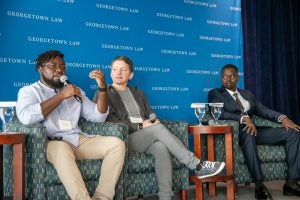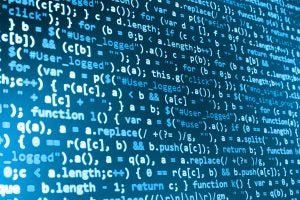
My Clinic Win: Promoting Ethical AI for Lawyers with the Intellectual Property and Information Policy Clinic
August 7, 2025 Clinics Students Technology, Communication, and Intellectual PropertyGrowing up in Atlanta, Sophia Ceniza, L’25, was fascinated by the city’s pivotal role in the Civil Rights Movement and its artistic and cultural heritage — an interest she carried with her as a law student hoping to explore the intersection of legal advocacy and artistic expression.





